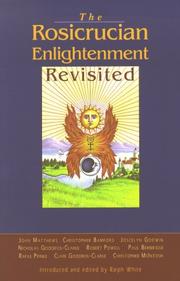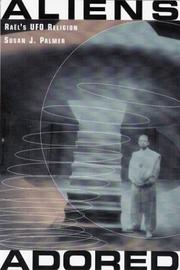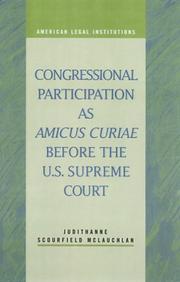| Listing 1 - 10 of 17 | << page >> |
Sort by
|
Book
ISBN: 9781620958810 Year: 2012 Publisher: S.L. The Humanity of Justice Foundation
Abstract | Keywords | Export | Availability | Bookmark
 Loading...
Loading...Choose an application
- Reference Manager
- EndNote
- RefWorks (Direct export to RefWorks)
corruption --- the court --- the jury --- American justice --- the law --- the criminal justice system --- the American justice system
Book
ISBN: 3845275928 9781509908929 3848732408 9783845275925 Year: 2018 Publisher: Baden-Baden, Germany : Hart Publishing : Nomos,
Abstract | Keywords | Export | Availability | Bookmark
 Loading...
Loading...Choose an application
- Reference Manager
- EndNote
- RefWorks (Direct export to RefWorks)
Amicus curiae participation in international courts is steadily growing since the late 1990 despite lack of clarity on the concept's nature, function and utility in international dispute settlement. Does amicus curiae infuse international judicial proceedings with alternative views, including the public interest in a case, as often advocated by NGOs? Does it increase the legitimacy and transparency of international dispute settlement, or the coherence of international law? Or is it an unhelpful impostor that impedes negotiated solutions and derails the proceedings at the expense of the parties to advance its own agenda? By way of an empirical-comparative analysis of the laws and practices of the ICJ, the ITLOS, the ECtHR, the IACtHR, the IACtHPR, WTO panels and the Appellate Body, and investment arbitration the dissertation examines the status quo of amicus curiae before international courts and tribunals to determine if the current amicus curiae practice is of added value to international proceedings and international dispute settlement in general. The dissertation shows that there is no common concept of international amicus curiae, but that amicus curiae before the international courts examined share a few characteristics. A proposed functional systematization highlights overlaps and diverging uses of the concept before international courts and helps scholars and practitioners to assess the opportunities and limits of the concept. Analysis of the concept's current regulatory framework and its substantive effectiveness reveals a hesitation in particular by courts with a strong adversarial tradition to take into account the views of a non-party despite the positive experience with the concept in regional human rights courts. The dissertation concludes that neither the expectations nor the concerns attached to amicus curiae participation in international proceedings have materialized. It argues that the concept can contribute to improved decisions and decision-making in international dispute settlement if regulated and used properly.
Amici curiae. --- International courts --- International tribunals --- Tribunals, International --- Courts --- Jurisdiction (International law) --- Amici curiae --- Friends of the court --- Parties to actions --- Law and legislation --- Law --- General
Book
ISBN: 9780737751673 Year: 2011 Publisher: Farmington Hills, MI Greenhaven Press / Gale, Cengage Learning
Abstract | Keywords | Export | Availability | Bookmark
 Loading...
Loading...Choose an application
- Reference Manager
- EndNote
- RefWorks (Direct export to RefWorks)
controversy --- religious symbols on public land --- public space --- religion --- public life --- the Christian past --- the Establishment Clause --- war memorial crosses --- patriotism --- Christianity --- radical secularism --- religious freedom --- activism --- the Court --- religious displays on public land

ISBN: 0940262843 Year: 1999 Publisher: Hudson, NY Lindisfarne Books
Abstract | Keywords | Export | Availability | Bookmark
 Loading...
Loading...Choose an application
- Reference Manager
- EndNote
- RefWorks (Direct export to RefWorks)
Rosicrucianism --- enlightenment --- the grail --- the Rose-Cross --- John Dee --- Central Europe --- Michael maier --- Tycho Brahe --- Johannes Kepler --- Rudolf II --- the Prague Hermetic Renaissance --- Michael Sendivogius --- Comenius --- the Court of Cromwell
Digital
Year: 1795 Publisher: [London] Philadelphia printed, London reprinted for F. and C. Rivington
Abstract | Keywords | Export | Availability | Bookmark
 Loading...
Loading...Choose an application
- Reference Manager
- EndNote
- RefWorks (Direct export to RefWorks)
Digital
Abstract | Keywords | Export | Availability | Bookmark
 Loading...
Loading...Choose an application
- Reference Manager
- EndNote
- RefWorks (Direct export to RefWorks)

ISBN: 0813534755 0813534763 9780813534756 9780813534763 Year: 2004 Publisher: New Brunswick, N.J.: Rutgers University press,
Abstract | Keywords | Export | Availability | Bookmark
 Loading...
Loading...Choose an application
- Reference Manager
- EndNote
- RefWorks (Direct export to RefWorks)
Vorilhon, Claude --- Raelian Movement --- 298.9 --- 298.9 Recente niet-christelijke of afgeleid-christelijke religies; New Age --- Recente niet-christelijke of afgeleid-christelijke religies; New Age --- Vorilhon, Claude. --- Rael, Claude Vorilhon --- Raelian Movement. --- International Raelian Movement --- Raël. --- the Raelians --- contactee prophets --- Ufology --- new religions --- the Court of Raël --- aliens --- cloning --- Claude Vorilhon

ISBN: 1593321651 9781593321659 1593320884 9781593320881 Year: 2005 Publisher: New York LFB Scholarly Pub.
Abstract | Keywords | Export | Availability | Bookmark
 Loading...
Loading...Choose an application
- Reference Manager
- EndNote
- RefWorks (Direct export to RefWorks)
Amici curiae --- Legislators --- Congressmen --- Congresswomen --- Members of Congress (United States) --- Members of Congress (United States House of Representatives) --- Members of Congress (United States Senate) --- Representatives in Congress (United States) --- Senators (United States) --- Friends of the court --- Parties to actions --- Law and legislation --- United States. --- Supreme Court (U.S.) --- Chief Justice of the United States --- Supreme Court of the United States --- 美國. --- Membership. --- Amicus curiae
Book
ISBN: 1593325045 9781593325046 1593324669 9781593324667 9781593324667 Year: 2012 Publisher: El Paso LFB Scholarly Pub.
Abstract | Keywords | Export | Availability | Bookmark
 Loading...
Loading...Choose an application
- Reference Manager
- EndNote
- RefWorks (Direct export to RefWorks)
Members of the Supreme Court are supposed to base decisions on the law, but often their choices are better explained by political ideology and party loyalty. Roberts sheds light on this problem by looking at a part of the Court's life that has never been systematically studied. Most cases feature extra briefs written by third parties known as amici curiae. He examines the rare occasions on which the Court allows these extra groups to participate not just by filing briefs but by appearing before the Court during oral arguments. By tracing how these groups influence the justices' behavior, Rober
Amici curiae --- Forensic orations --- Political questions and judicial power --- Public interest law --- Arguments, Legal --- Legal arguments --- Oral pleading --- Speeches, addresses, etc. --- Trial practice --- Forensic oratory --- Friends of the court --- Parties to actions --- Law and legislation --- United States. --- Supreme Court (U.S.) --- Chief Justice of the United States --- Supreme Court of the United States --- 美國. --- Decision making.
Digital
Year: 1777 Publisher: Edinburgh Printed for J. Balfour
Abstract | Keywords | Export | Availability | Bookmark
 Loading...
Loading...Choose an application
- Reference Manager
- EndNote
- RefWorks (Direct export to RefWorks)
Muhammad Ali Khan, Umdat al-Mulk Anwar al-Din, -- Nawab of Arcot, -- 1717 or 18-1795 -- Letter from Mohommed Ali Chan, Nabob of Arcot, to the Court of Directors --- Tuljaji, -- Raja of Tanjore, -- d. 1787 --- East India Company --- India -- Politics and government --- Thanjåavåur (India : District) -- Politics and government
| Listing 1 - 10 of 17 | << page >> |
Sort by
|

 Search
Search Feedback
Feedback About UniCat
About UniCat  Help
Help News
News